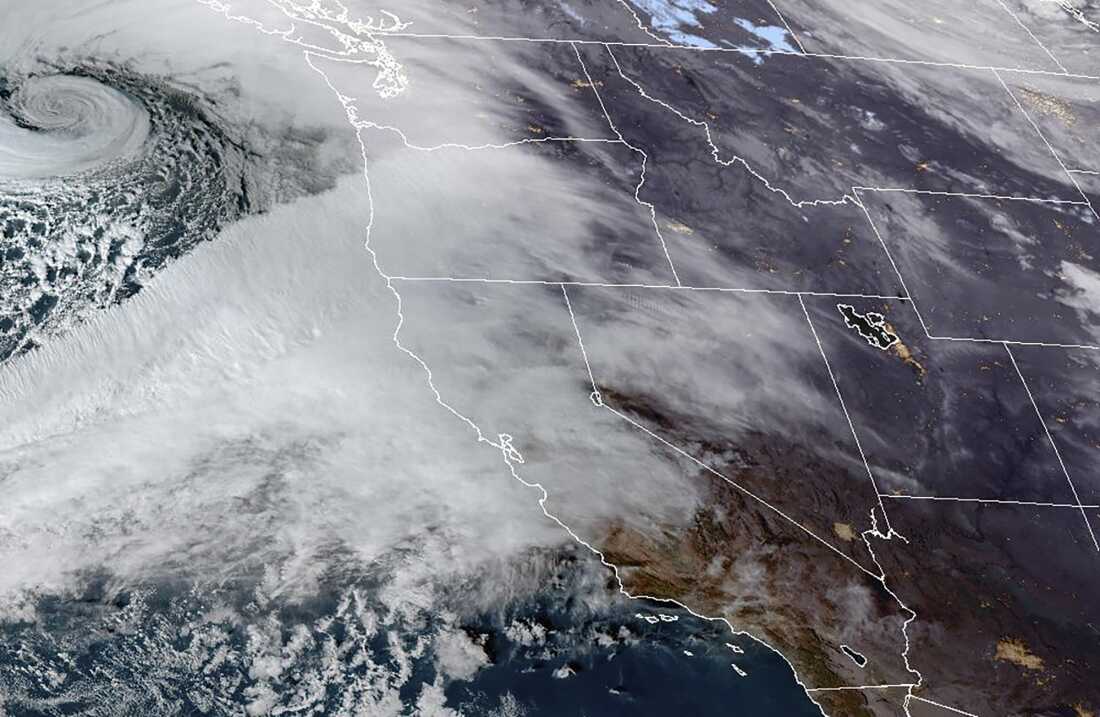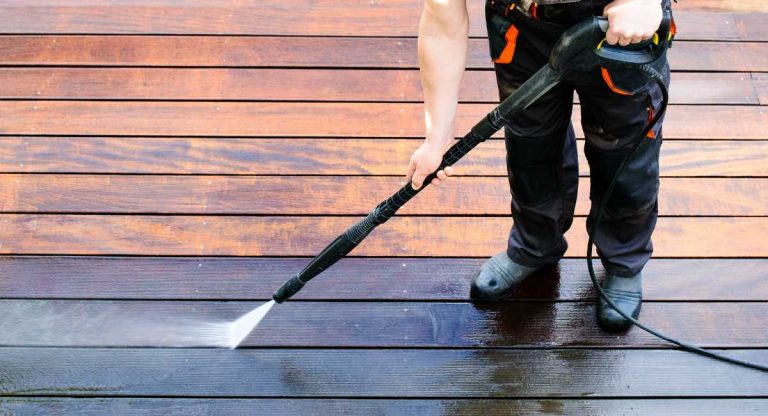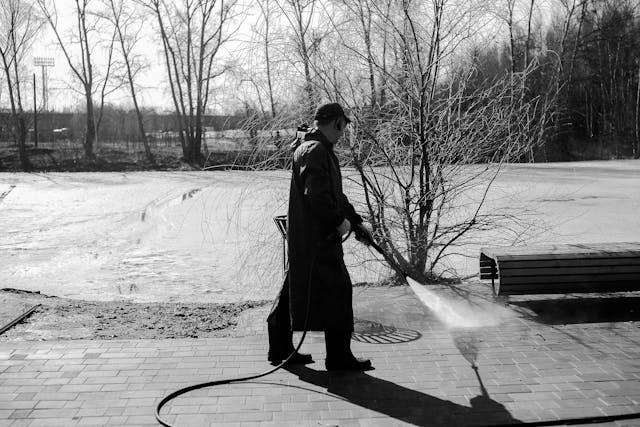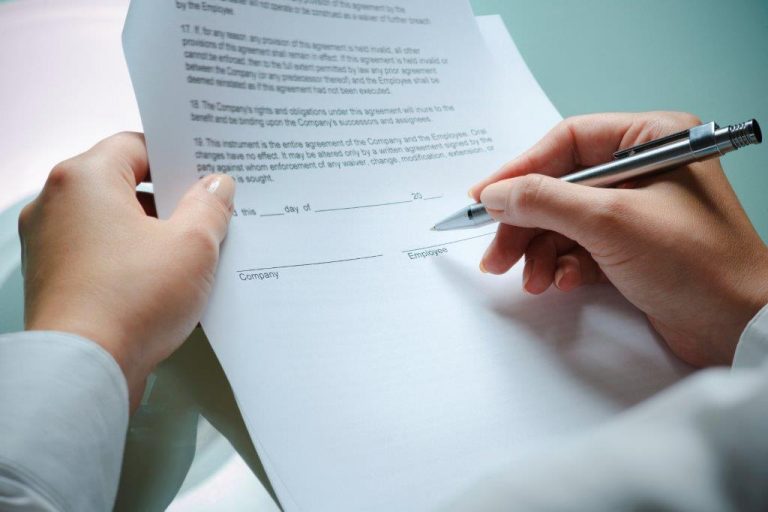
When it comes to scheduling a power washing service, most people think about dirt levels or upcoming events like home showings or parties. But one factor that often gets overlooked — and can have a huge impact — is local weather. Whether you’re dealing with desert heat, coastal humidity, snowy winters, or rainy springs, your region’s weather patterns play a crucial role in when and how often you should power wash your property. 🌍
In this guide, we’ll break down how different climates affect surface grime, mold growth, scheduling opportunities, and even the longevity of power washing results. Knowing when to time your cleaning can save you money, extend your home’s curb appeal, and reduce long-term maintenance. 💡
🌦️ The Role of Weather in Exterior Grime Build-Up
Before choosing when to hire a power washing service, it’s important to understand how your local climate influences the accumulation of dirt, algae, mildew, and pollutants. Different regions come with their own grime challenges:
- Humid or Rainy Climates: Places like the Southeast U.S. are prone to mildew, algae, and mold, which thrive on moisture. These organisms grow fast, especially on siding, roofs, and concrete.
- Dry, Dusty Climates: In desert or arid regions like Arizona or parts of California, dust and sand quickly coat outdoor surfaces. Wind can also blow debris against walls and driveways.
- Coastal Areas: Salt in the air and moisture from the sea can lead to corrosive buildup, especially on metal fixtures, fences, and vinyl siding.
- Cold, Snowy Winters: Ice melt chemicals, road salts, and decaying snow can stain and damage driveways and sidewalks. Spring cleaning is critical in these areas.
Understanding how the elements interact with your home’s exterior helps you make a more strategic decision about when to call the pros. ✅
📆 Best Times of Year to Hire a Power Washer Based on Climate
Power washing isn’t just about cleaning — it’s also about timing. Here’s a breakdown of the best seasons for power washing in different regions:
☀️ Hot & Dry Regions (e.g., Southwest U.S.):
- Best time to wash: Spring and fall
- Why: Summer can be too hot, leading to rapid water evaporation and streaking. Spring and fall offer moderate temps, ideal for deep cleaning.
- What to clean: Dust-caked windows, stucco, concrete, solar panels
🌧️ Humid & Rainy Regions (e.g., Southeast U.S.):
- Best time to wash: Late spring or early fall
- Why: These are dryer periods between rainy seasons, reducing the chance of mildew returning immediately.
- What to clean: Moldy siding, patios, roof algae, decks
❄️ Cold & Snowy Regions (e.g., Northeast, Midwest):
- Best time to wash: Late spring
- Why: You’ll want to remove grime, salt stains, and buildup after the final thaw to prevent permanent staining.
- What to clean: Driveways, walkways, foundations, salt-exposed surfaces
🌊 Coastal Areas:
- Best time to wash: Late spring or early summer
- Why: Frequent salt exposure can be damaging, especially after stormy winter seasons. Early summer gives surfaces time to dry properly.
- What to clean: Siding, railings, decks, outdoor furniture, gutters
🧼 How Weather Affects the Quality and Longevity of a Power Wash
If you power wash at the wrong time — like just before a big rainstorm or during a high-pollen season — you might not get your money’s worth. Here’s how different weather factors can impact your results:
🌧️ Rain: Light rain won’t hurt, but heavy rainfall within 24 hours can wash dirt back onto freshly cleaned surfaces.
🌞 Extreme Heat: Fast-drying water can leave behind streaks or soap residue. It may also lead to cracking if hot surfaces are sprayed without care.
🍂 Falling Leaves/Pollen: Power washing during these times can lead to immediate re-soiling, especially in wooded or suburban areas.
🧊 Freezing Temps: Cold weather can cause water to freeze inside equipment or on surfaces, leading to hazards or ineffective cleaning.
Bottom line? If you want lasting results, it’s better to time your power washing for when weather patterns are stable and predictable.
🗓️ Should You Schedule in Advance?
Yes — especially if you live in a region with a narrow window of optimal conditions. Reputable power washing services book up quickly in peak seasons (typically spring and fall), so scheduling a few weeks in advance can help you avoid delays and inflated prices. 📞💬
Some companies even offer seasonal contracts or discounts for early booking — something worth asking about when you’re hiring. 💸
🏠 Other Weather-Related Tips When Hiring a Power Washer
- ✅ Ask if the company adjusts its methods for local weather (e.g., temperature-safe detergents, low-pressure rinsing in heat)
- ☔ Make sure they offer rescheduling flexibility if bad weather is forecasted
- 🌬️ Avoid windy days that can blow spray and debris where you don’t want it
- 🧽 Request aftercare tips tailored to your climate to help maintain results
💡 Final Thoughts: Let the Weather Work For You
Hiring a power washing service isn’t just about how dirty your home is — it’s also about when you clean it. By working with your local climate instead of against it, you can extend the life of your exterior surfaces, maximize your investment, and enjoy a better-looking property year-round.
So next time you think about scheduling that cleaning, take a look outside. The sky might just be your best guide. 🌤️💧
Browse Amazon Here For Top Rated Power Washers And Accessories






